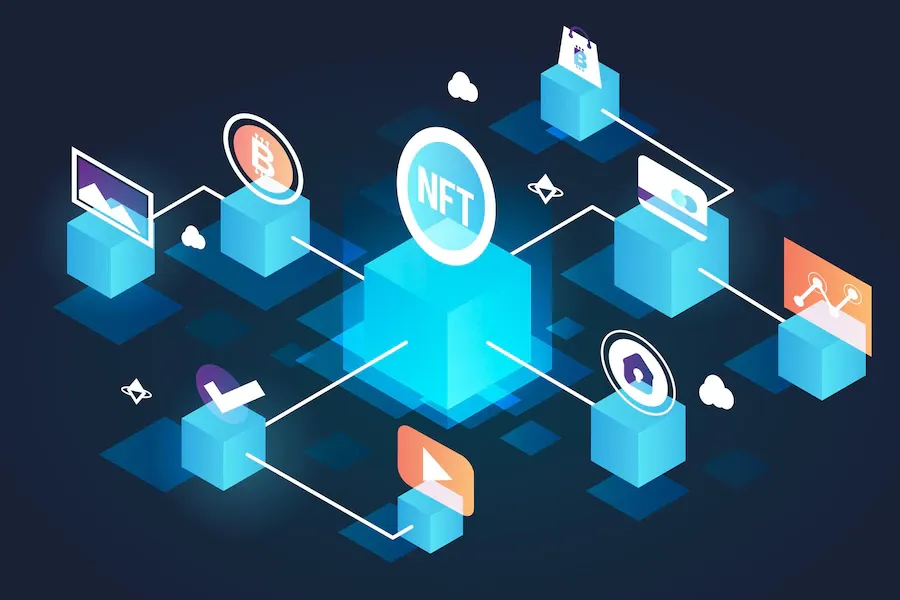Blockchain first appeared in 2009 as an advanced technology behind the success of Bitcoin. Most people saw it only as a tool for digital money. But over the years, blockchain has changed into one of the most transformative technologies of today's time, reshaping how industries operate. Blockchain is a secure, decentralized digital ledger that records transactions across many computers. In this blog, we will explore the top five ways blockchain is transforming industries and the benefits it brings.
Finance & Banking
The finance industry has been one of the first to suffer from blockchain's disruption. Traditional transactions, especially cross-border payments, used to take many days and involve multiple banks, each charging hefty fees. Blockchain enables peer-to-peer transactions validated by the network itself, removing intermediaries and increasing efficiency through faster transactions and smart contracts.
Benefits of Blockchain in Finance & Banking:
- Minimizes cross-border settlement time from days to seconds.
- Cuts down transaction costs significantly.
- Enhances security and lowers fraud risk.
- Offers financial access for the unbanked population.
For example: Ripple is working with banks to speed up international remittances at lower costs.
Supply Chain & Logistics
Global supply chains involve multiple steps and stakeholders, making them prone to counterfeit goods, inefficiencies, and lack of visibility. Blockchain provides a shared, immutable ledger that enhances transparency and ensures accuracy. It reduces fraud, removes intermediaries, and allows better product tracking.
Benefits of Blockchain in Supply Chain & Logistics:
- Ensures product authenticity and prevents counterfeiting.
- Improves consumer trust with transparent sourcing.
- Enables quick recalls of unsafe or defective products.
- Increases efficiency by reducing paperwork and manual checks.
For example: Walmart uses blockchain with IBM to trace food products back to their source in seconds, ensuring safety and accountability.
Healthcare Industry
Healthcare systems often struggle with fragmented and insecure patient records spread across hospitals, clinics, and labs. Blockchain enables secure, interoperable, and patient-owned health records. Patients control access while doctors receive real-time, accurate data, improving efficiency and privacy.
Benefits of Blockchain in the Healthcare Industry:
- Enhances data security and reduces breaches.
- Cuts down on duplicate tests and costs.
- Reduces fraud in insurance and billing.
- Improves quality of care through accurate records.
For example: Guardtime has implemented blockchain to protect millions of healthcare records worldwide.
Real Estate
Buying or selling property traditionally requires extensive paperwork, legal intermediaries, and government approvals. Blockchain uses smart contracts to remove intermediaries, enhance transparency with immutable records, and improve liquidity through property tokenization and fractional ownership.
Benefits of Blockchain in Real Estate:
- Reduces fraud and disputes with tampered ownership records.
- Cuts down paperwork and processing time.
- Lowers transaction costs by minimizing intermediaries.
- Makes international property deals easier and safer.
For example: Propy, a blockchain-based platform, has introduced real estate transactions in the U.S. and abroad.
Voting & Governance
Elections face challenges like cheating, manipulation, and limited accessibility. Blockchain-based voting systems offer a tamper-resistant and transparent alternative. Votes are securely stored and verifiable on the blockchain, increasing trust and accessibility while reducing fraud.
Benefits of Blockchain in Voting & Governance:
- Prevents fraud and election manipulation.
- Increases voter participation with secure online voting.
- Provides transparent and verifiable results.
- Builds greater trust in democratic systems.
For example: Estonia, a global leader in digital governance, has tested blockchain-based voting to strengthen election security.
Conclusion
Blockchain is no longer just about cryptocurrency—it is now transforming industries at their core. By revolutionizing finance, supply chains, healthcare, real estate, and governance, blockchain is creating systems that are more transparent, efficient, and secure. As adoption grows, businesses and governments that adapt early will gain the most advantage. The question is no longer if blockchain will reshape industries, but how quickly this transformation will take place. Blockchain is not simply a trend—it is the foundation of the future digital economy.

